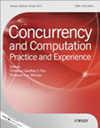Hybrid energy-Efficient distributed aided frog leaping dynamic A* with reinforcement learning for enhanced trajectory planning in UAV swarms large-scale networks
Abstract
UAVs are emerging as a critical asset in the field of data collection from extensive wireless sensor networks (WSNs) on a large scale. UAVs can be used to deploy energy-efficient nodes or recharge nodes, but it should not compromise the network's coverage and connectivity. This paper proposes a comprehensive approach to optimize UAV trajectories within large-scale WSNs, utilizing Multi-Objective Reinforcement Learning (MORL) to balance critical objectives such as coverage, connectivity, and energy efficiency. This research investigates the configuration of a Wireless Sensor Network (WSN) assisted by a pen_spark UAV. In this network, Cluster Heads (CHs) act as central points for collecting data from their assigned sensor nodes. A predefined path is established for the UAV to efficiently gather data from these CHs. The Hybrid Threshold-sensitive Energy Efficient Network (Hy-TEEN) encompasses sophisticated algorithms for CH selection, dynamic A* for 3D trajectory planning and leverages reinforcement learning for multi-objective optimization. The experimental results and analysis demonstrate the effectiveness and efficiency of the proposed approach in improving UAV performance and energy efficiency. The results demonstrate that the proposed methodology's trajectories are capable of achieving a time savings of 3.52% in mission completion when contrasted with conventional baseline methods.

 求助内容:
求助内容: 应助结果提醒方式:
应助结果提醒方式:


